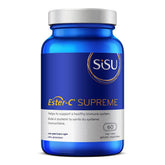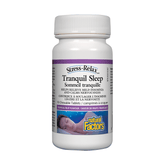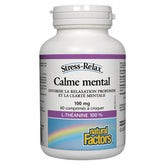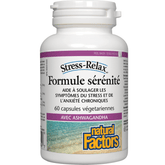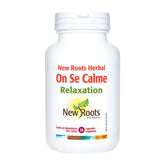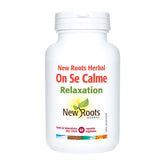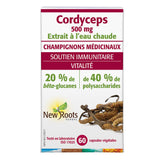The latest developments linked to the COVID-19 pandemic raise the question: what can we do to strengthen our immune system? While few cases have been reported in Canada to date, compared with other hard-hit countries around the world, a few good reflexes can help you fortify your natural defenses.
To minimize the spread of the COVID-19 (or coronavirus), several measures and recommendations were announced on Wednesday and Thursday by the federal and Quebec governments. These include asking organizers to cancel all indoor events and gatherings of more than 250 people.
The sports world also took emergency measures, with the NHL, NBA and MLS deciding to suspend their seasons until further notice.
What can you do to boost your immunity? We take a look at the foods and supplements that may be useful and appropriate at this time, while answering a number of questions surrounding this new virus.
What's the difference between a pandemic and an epidemic?
This week, the World Health Organization (WHO) decided to classify COVID-19 as a pandemic. This decision is due to the scale of the disease's spread, which goes beyond a single country or region (referred to as an epidemic) to cover the entire planet.
What is the coronavirus (COVID-19)?
According to the WHO, the much-talked-about COVID-19 coronavirus is a member of the coronavirus family, which can cause respiratory infections ranging from the common cold to more serious illnesses. The most common symptoms of the COVID-19 variant are fever, fatigue and a dry cough, but some also present with aches, nasal congestion, runny nose, sore throat or diarrhea. The WHO cites that "These symptoms are generally mild and appear gradually. Some people, although infected, have no symptoms at all and feel fine."[1]
How is the coronavirus (COVID-19) spread?
According to the WHO, the virus is transmitted from one contagious person to another mainly via droplets projected from the mouth or nose, generally when a person coughs or sneezes. It is also possible to spread the virus through contact with an object or surface that has recently been contaminated, touching either the nose, mouth or eyes.[2]
What is the risk level of coronavirus (COVID-19) in Canada?
According to the Public Health Agency of Canada (PHAC), the risk remains low for the general population, but could change suddenly. However, some people are at greater risk:
- People aged 65 and over
- People with immunodeficiencies
- People with underlying medical conditions[1]
How can I reduce the risk of coronavirus (COVID-19) transmission?
Here are 6 simple tips to reduce the risk of coronavirus (COVID-19) transmission:
- Be sure to hand washing frequently with water and soap or use a hydroalcoholic solution such as disinfectants to kill the virus on your hands.
- Avoid touching your mouth, nose or eyes to reduce the risk of the virus entering your body.
- Visit cover mouth and nose when coughing and sneezing preferably using the inside of the elbow.
- Ensure complete cooking of meat and eggs.
- Keep your distance of at least one meter from others who are coughing or sneezing to reduce the risk of transmitting contaminated droplets.
- If you feel unwell or that you have symptoms of the virus, stay at home or see a doctor after calling. It is important to follow the instructions of local health authorities to protect yourself and avoid the spread of viruses and other infectious agents. The WHO reminds us that"Avoiding contact with other people and visiting health facilities will enable these facilities to function more efficiently and protect you and others from COVID-19 and other viral diseases"..[1]
All the above recommendations also apply to preventing and reducing the spread of other viral diseases.
How can I improve my immune system with natural products in this time of pandemic?
To date, scientific data relating to the coronavirus is rather limited, and although we cannot guarantee the efficacy of the products on this list, they do promote the body's equilibrium (homeostasis) and strengthen the immune system. They are therefore genuine health allies in this time of viral pandemic.
Here are a few examples 7 ways use natural products to improve your immune system and reduce the risks associated with viral infections of the respiratory tract.
Consume probiotics
The consumption of probiotics promotes a healthy intestinal flora dominated by bacteria beneficial to immune health. By consuming probioticsconsumption, immunity is strengthened and the risk of infection and illness is reduced. To find out more about the benefits of probiotics, please visit this article. [3] [4]
Taking antioxidants
Several antioxidant nutrients strengthen the immune system and prevent infection, including vitamin C or vitamin C for children, Zinc and selenium which, when consumed in sufficient quantities, prevent infections and/or shorten their duration. According to preliminary studies, the most promising nutrient for coronaviruses appears to be zinc, especially when bound to ionophore binders. Quercetin is another powerful antioxidant with antihistaminic effects that reduces the symptoms of respiratory infections, including runny nose and sneezing. [5] [6] [7] [15]
Promoting good sleep
Without optimal sleep, the immune system is weakened. If you suffer from insomnia, there are a number of natural products that can help. These include valerian, passionflower and melatonin. For a safe formula, choose either Deep Sleep or Tranquil Sleep which help you fall asleep and restore your sleep cycles. [5]
Reduce stress
Exposure to stress raises cortisol levels, which in turn weakens immunity. In the current pandemic context, where stress levels are heightened, promote the consumption of calming plants such as skullcap, oatsoats holy basiland St. John's wort to establish a natural calm and soothe mental agitation. There's also the amino acid Gaba which helps to temporarily promote a state of relaxation. Certain synergies can also help reduce stress and agitation, such as Mental Calmand Serenity Formulathe Chill Pillsthe Deep Immune Original and Super Stress B. [5] [8]
Use antiviral essential oils
Many oils have well-known antiviral properties. The most important to have on hand at the moment are the essential oil ofeucalyptus radiata oreucalyptus globulus (fights viruses and fever, clears the respiratory tract) and essential oil of rosemary (kills viruses on surfaces and in the air). Be sure to use essential oils correctly and to necessary precautions with children. [9] [10]
Fortifying defences with astragalus & adaptogenic mushrooms
L'astragalus reduces fragility and susceptibility to infection, and acts directly on the respiratory tract. Visit adaptogenic medicinal mushrooms are also good allies for boosting the immune system, such as cordyceps, maitake and the immunity champion... coriolus. The best solution is to combine them with the Resilience mushroom mix. [11] [12]
Take vitamin D regularly
Vitamin D is excellent for immune health, particularly in preventing flu and respiratory tract infections. Supplementation with vitamin D supplementation is important in winter, but even more so now. Despite the imminent arrival of spring, continue to consume it every day. [13]
While it's important to focus on measures to prevent the spread of COVID-19, it's also wise to pack a few essentials to take care of yourself when necessary.
- Plantain syrup. This syrup is a perfect blend of plants that promote healing of the respiratory tract, including lanceolate plantain, which has been studied for its effect on acute respiratory infections. [14]
- Epsom salt. In the event of a viral infection, muscle and joint pain can be severe. Epsom salt baths help reduce inflammation and pain.
- Electrolytes. In the event of severe fever, it is important to prevent dehydration. Electrolytes ensure maximum hydration.
Focus on prevention by following current recommendations and adopting healthy lifestyle habits. Our advisory service will be happy to help you and make personalized recommendations. You can talk to our health advisors in person or by e-mail at santé@laboiteagrains.com.
We wish you good health!
About the author
Naturopaths of La Boite à Grains
Team of licensed and certified naturopaths (ND) in Gatineau, Outaouais.
Original article written by Véronique Cousineau, Naturopath
------------
For more details on the development of the coronavirus (COVID-19), please consult the following websiteWHO andASPC.
Sources
[1] "Coronavirus disease 2019 (COVID-19): questions and answers." World Health Organization. Accessed March 12, 2020. lhttps://www.who.int/fr/emergencies/diseases/novel-coronavirus-2019/advice-for-public/q-a-coronaviruses
[2] "Coronavirus disease (COVID-19): Outbreak update." Government of Canada. Health. Accessed March 12, 2020. https://www.canada.ca/fr/sante-publique/services/maladies/2019-nouveau-coronavirus.html#a1
[3] Giorgetti, GianMarco, et al. "Interactions between Innate Immunity, Microbiota, and Probiotics." Journal of Immunology Research 2015 (2015).
[4] Marchesi, Julian R., et al. "The gut microbiota and host health: a new clinical frontier." Gut (2015): gutjnl-2015
[5] Haas, M. Elson, Mwith Levin, Buck, PhD, RD. (2006) Staying Healthy with Nutrition. 21st century edition. (p. 633-643). Crown Publishing Group.
[6] Michael, T. M, ND. Joseph Pizzorno, ND. (2012) The encyclopedia of natural medicine. Third edition (pp. 368-375). Atria Paperback.
[7] Phyllis, a. Balch, CNC. (2010). Prescription for nutritional healing, Fifth Edition. Penguin Group publishers.
[8] DUMENAT Phytothérapie teaching team, Faculty of Medicine Paris-XIII, Bobigny (2003). Les médecines de la nature - 200 plantes pour se soigner. (Adapted from La Santé par les plantes). Canada, Montreal: Sélection du Reader's Digest.
[9] Turpide, M. (2015) Aromathérapie à tous les jours. Collection Santé Arome. (p. 46-47 & ). Le Caïs du livre inc.
[10] Khwaza V, Oyedeji OO, Aderibigbe BA. Antiviral Activities of Oleanolic Acid and Its Analogues. 2018;23(9):2300. Published 2018 Sep 9. doi:10.3390/molecules23092300
[11] Hobbs, Christopher, L. Ac. Medicinal Mushroom (March 30, 2003). Book Publishing Company; New edition
[12] Gao, Yihuai & Zhou, Shufeng (2002). The Immunomodulating Effects of Ganoderma lucidum (Curt.: Fr.) P. Karst. (Ling Zhi, Reishi Mushroom) (Aphyllophoromycetideae). International Journal of Medicinal Mushrooms
[13] Aurica G. Telcian, Mihnea T. Zdrenghea, Michael R. Edwards, Vasile-Laza Stanca, Patrick Mallia, Sebastian L. Johnston, Luminita A. Stanciu. Vitamin D increases the antiviral activity of bronchial epithelial cells in vitro. Antiviral Research. 2016 Nov 9
[14] Kraft K (1997) Study published in Germany, mentioned and summarized in: Schulz V, Hänsel R, Tyler VE. Rational Phytotherapy - A Physicians' Guide to Herbal Medicine, fourth edition, Springer, Germany, 2001, p. 181.
[15] te Velthuis AJ, van den Worm SH, Sims AC, Baric RS, Snijder EJ, van Hemert MJ (November 2010). "Zn(2+) inhibits coronavirus and arterivirus RNA polymerase activity in vitro and zinc ionophores block the replication of these viruses in cell culture". PLoS Pathogens. 6 (11): e1001176.



